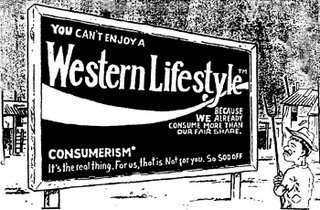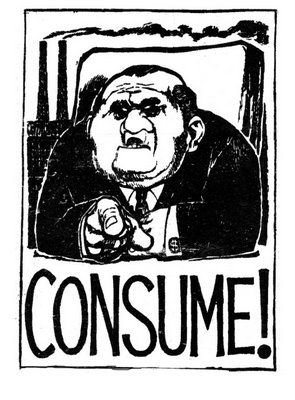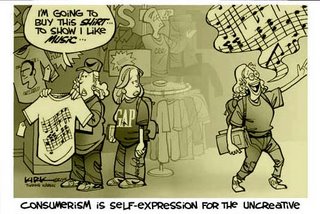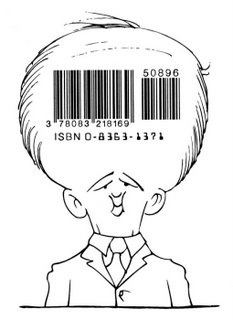 Do you know your IQ?
Do you know your IQ?
Traditionally speaking, we all know that the conventional measure of a person's intelligence is their IQ. This stands for "Intelligence Quotient" and it usually reflects the score on a Stanford-Binet test for intelligence.
Supposedly, a person of average intelligence should score approximately 100, while a developmentally-challenged person would score less than that, and a highly intelligent person would be expected to score higher than that. A score of 130 or higher was generally considered a "genius" and so that became the entrance requirement for being invited into Mensa, the high-IQ society originally based in England.
In fact, it has even been laid out as to what types of career and scio-economic status a person is qualified for and can hope to achieve based upon their IQ score.
In the 1981 book, "Straight Talk About Mental Tests", Dr. Arthur Jenson has even created a table to show how far you can expect to go in life with your IQ. The following is an excerpt.
IQ Range Freq. Educability Employment Options
Below 30 >1% illiterate unemployable. Institutionalized
30 to 50 >1%? 1st-3rd Grade Simple, non-critical house chores.
50 to 60 ~1%? 3rd-6th Grade Very simple tasks, close supervision.
60 to 74 3.5%? 6th-8th Grade "Slow, simple, supervised."
74 to 89 20% 8th-12thGrade Assembler, food service, nurse's aide
89 to 100 25% 8th-1-2 years College. Clerk, teller, Walmart
100 to 111 50% 12th-Grade-Coll. Degree Police officer, machinist, sales
111 to 120 15% College to Master's Manager, teacher, accountant
120 to 125 5% College to Non-Tech PhD. Manager, professor, accountant
125 to 132 3% PhD at 3rd-Tier Schools Attorney, editor, executive.
132 to 137 1% No limitations. Eminent professor, editor
137 to 150 0.9% No limitations. Leading math, physics professor
150 to 160 0.1% No limitations Lincoln, Copernicus, Jefferson
160 to 174 0.01% No limitations Descartes, Einstein, Spinoza
174 to 200 .0099% No limitations Shakespeare, Goethe, Newton
However, originally, the IQ test score was never meant to be used this way at all. It was first developed in France in 1904 by Alfred Binet and assisted by Theophile Simon. It was then called the Simon-Binet test, and used only as a means of sorting school children into groups of normal development, and those who needed more help. That was it's original and only purpose. Binet cautioned many times that it was not to be used as a method to measure intelligence ABILITY, and should never be used as “a general device for ranking all pupils according to mental worth.”. In fact, he said that it is not a measure of intelligence, but rather simply a measure of development for children and that was why the age of the child being measured was part of the calculation. For example, if he found that 70% of 8 year olds could pass a certain test, then that would be considered the average intelligence for an 8 year old. Different tests were given for different ages. If an 8 year old could pass the test for a 10 year old, then the score is divided by the chronological age and multiplied by 100 to get the final IQ. 10/8 X 100 = 125. Therefore, logically, a child that performed above average for his age would have an above average score on the IQ test, and vice versa.
Of course the American school system administrators didn't listen to his warnings and caveats, and saw this as a wonderfully easy way to rank the intelligence of children, so it was adopted and modified and translated into English by H.H. Goddard as a way to screen applicants for entry into his school - the Vineland Training School of New Jersey.
He invented some terms that he associated with various rankings on the Simon-Binet IQ scale. Working down from the top, was "Normal", "Moron", "Idiot", and finally, "Imbecile". Now you know where those terms came from.
Goddard was influential in affecting the immigration policies of the US of the time. He lobbied hard against allowing those of lesser mental faculties to be allowed to enter the country. His 'findings' were that most people other than northern Europeans were of inferior intelligence, and he even classified 87% of all Russian immigrants as being at the "moron" level, and so they and thousands of others were deported in 1913 and 1914 as a way to try to keep out inferior people.
However, no one ever seemed to question the fact that the test was given in English and was based upon American cultural references - all of which would be completely foreign to people who did not speak English or who were unfamiliar yet with American culture. It is a perfect example of how unfair these tests were, and are, and how they can so easily be misunderstood and misused.
Then there was another adaptation by Lewis M. Terman of Stanford in 1916 which thereafter became known as the "Stanford-Binet" test and it was this version which became enshrined into our culture over the past century as a way to measure the actual intelligence, that is the mental value, of a person. When you hear the term "IQ Test" today, that typically refers to the co-called "Stanford-Binet Scale".
It has even been touted as once of the crowning scientific achievements of the 20th century.
But as it's original designers warned, it is woefully inadequate to the task. Binet said that you cannot measure mental capacity like measuring a linear surface, because it is not linear. He would no doubt be shocked to learn that a form of it is still being used 100 years later as a means to measure the mental capabilities of ADULTS! To be fair, it has evolved over the years and is now more sophisticated, but still it is limited and abused in it's current application. The 'test' is actually a series of tests that measure the abilities of the person being tested to remember and properly understand and use vocabulary, to remember facts, to calculate arithmetic, to perform pattern recognition tasks, and to execute logical processes. It does cover a number of mental processes, and so it seems to have some use at measuring the easily measurable aspects of a person's ability to function mentally.
But I feel it is incomplete, and that it is an unreliable tool for truly measuring the mental capabilities of a person.
In more recent times, there have been some researchers who have suggested different kinds of intelligences besides that measured by the standard Stanford-Binet IQ tests. Some have suggested physical intelligence, emotional intelligence, and so on. I would say though that some of the so-called 'intelligences' are closer to what I would consider to be skills, rather than intelligences. I think the difference is whether it truly represents a way of thinking and whether it is natural or learned. I would suggest that if it can be learned, then it is more properly named a 'skill'. Using that criteria, many of these so-called intelligences would not qualify.
I propose that there are 7 intelligences. The current Stanford-Binet IQ test represents 3 different intelligences, plus 4 more besides. The 7 intelligences together make up the total mental acuity of each of us and represents the potential effectiveness of our thinking abilities. Also, I believe it is important to recognize that a person may score differently from time to time based on various factors such as how tired they are, how much pressure they are under at the moment, health issues, food that is currently in their system, drugs or chemicals in their system, and also things they have learned since the last test. So it is important to take measurements over a span of different times to get an average reading to find a fair and useful assessment. The 7 intelligences I suggest are the following:
1) Logical Intelligence
2) Pattern Recognition Intelligence
3) Memory Intelligence
4) Language Intelligence
5) Emotional Intelligence
6) Mechanical Intelligence
7) Creative Intelligence
Lets look at each of them in turn.
Logical Intelligence
This form of intelligence is covered under existing IQ tests. It represents the ability of the test taker to solve problems using inductive or deductive reasoning. This intelligence can recognize and eliminate non-sequiturs, and it can solve mathematical problems. This is at the core of analysis, which is useful in everyday life in almost every situation to some degree. This is an extremely important form of
intelligence, but it is sometimes mistaken for the ONLY form of intelligence, which I consider to be rather unfair and short-sighted.
Pattern Recognition Intelligence
This form is also included in the classic IQ tests, and represents the ability of a person to detect patterns and anticipate what will happen next. It is the ability to extrapolate and compare. It becomes very valuable for troubleshooters of any ilk from computer programmers to diesel mechanics to scientists. Any form of trouble shooting involves the ability to recognize and compare patterns of behavior and then make logical deductions based on the observations and analysis.
Memory Intelligence
This is the natural ability to store words, facts, and processes, and then recall them at will. Some people are blessed with a 'photographic memory' which means that their brain can easily memorize every thing they see. When they recall it later, they say it is like looking at a photograph. They can remember an entire book by calling up each page and reading from the image in their mind. I personally have a terrible
natural memory, so this one really fascinates me.
Language Intelligence
Some people have "the gift of gab" as it has been called. They can talk smoothly and entertainingly about anything at all. They find it easy to get along with people because they express themselves well. They make good salespeople, good teachers, good guides, and they make good radio and television hosts. However it is not limited to spoken words. Some people may be too shy to be that gregarious, but they are just born to be a poet. They have a gift for using words to great effect. A natural
ability to bring tears and joy to others through well-chosen words. Often, a person with a high intellect in this are also has the ability to learn other languages easily. Anyone can learn more languages, but it is easier for some than others. It is more than a skill. It is a natural aptitude for language in all forms. It is a way of parsing out the world, and expressing complex ideas and concepts in language terms, and so it properly belongs as an intelligence.
Emotional Intelligence
This is a much-touted form of intelligence in recent years, due in part to a book by the same name. I have read this book and it does seem to be a legitimate form of intelligence. It is essentially described as the ability of a person to recognize their own emotional states and to exercise control over them.
It can be measured in people as young as 4 years old using the "marshmallow test". The child is put in a chair at a table and the adult tells the child that the marshmallow on the table in front of them is theirs if they want it. However, if they can wait until the adult comes back into the room, then they can have all the marshmallows they want. But if they choose to take this marshmallow, then they will not be given any more. Then they are left alone in the room, but they are observed by camera. The more time that goes by, the more tempting the marshmallow in front of the child becomes. They can get a measure of it by seeing how long the child can resist.
This measures the childs ability to control their behavior despite their instincts and urges. Of course, it presupposes that the child likes marshmallows.
A person who has a high emotional intelligence can overcome panic in an emergency, or can overcome tiredness or boredom or fear, and focus all their attention on solving a certain problem at hand. This ability to focus one's attention despite emotional distractions gives this intelligence it's power. A calm, focused person of average logical ability might solve a challenging problem before a highly logical person who is emotional distraught and distracted.
Mechanical Intelligence
Some people simply have a higher ability than others in this category. Some people have an innate ability to see a physical mechanical solution to a problem and then solve it. Often these people are said to be "good with their hands". But it is more than just dexterity or flexibility or strength. It is a way of thinking. It is a physical, mechanical inventiveness. A way to see how things work and fix them in unique inventive ways if they are broken. These people often become inventors.
Creative Intelligence
The creative leap. The intuitive genius. This is the hardest one to understand and measure because who can tell when one creative solution is more creative than another? Some people have a strong natural ability to come up with unique, unorthodox solutions to problems, or unique perspectives.
Obviously, this kind of intelligence is strong in the arts. Creative people often express themselves artistically because it is the most direct way to express the creative urges and thoughts and feelings. Music, poetry, literature, sculpture, painting, photography - all the artistic paths allow ways for the highly creative mind to exercise it's abilities and creative intelligence.
A person who does not have high logical intelligence or strong emotional intelligence, can still find solutions through unorthodox perspectives and pure creative leaps of intuition. I believe that all the intelligences are valuable, but this one may be the most rare and most valuable of all.
So there you have it. In my opinion, the combination of all seven of these intelligences represents more precisely the overall intellectual capabilities of an individual. If one person is lower in one area and higher in another, and another person score the reverse, they might average out to the same overall intellectual ability because often, one form of intelligence compensates for another, as one ability compensates for a lack in another.
What we need now is a reliable way to measure all these intelligences fairly for everyone. Only then will we have a true measure of intelligence that is useful for the purpose we try and stretch the old-fashioned IQ tests to cover.
One thing I'd like to point out is that all of this only assesses the potential intelligence of a person, not necessarily the actual effective intelligence of a person. For any of these intelligences to be effective, they must be applied. Sherlock Holmes was more effective than his 'smarter' brother mycroft, because he actually got out and applied his intelligence, while Mycroft stayed back in his London club and observed at a distance.
 Does it ever strike you that, from the first moments of social awareness, we are conditioned by our culture to want to acquire 'things'? Toys, at first. Then better and better toys. Equipment, stereos, cars, boats, houses, kitchen applicances.
Does it ever strike you that, from the first moments of social awareness, we are conditioned by our culture to want to acquire 'things'? Toys, at first. Then better and better toys. Equipment, stereos, cars, boats, houses, kitchen applicances.










